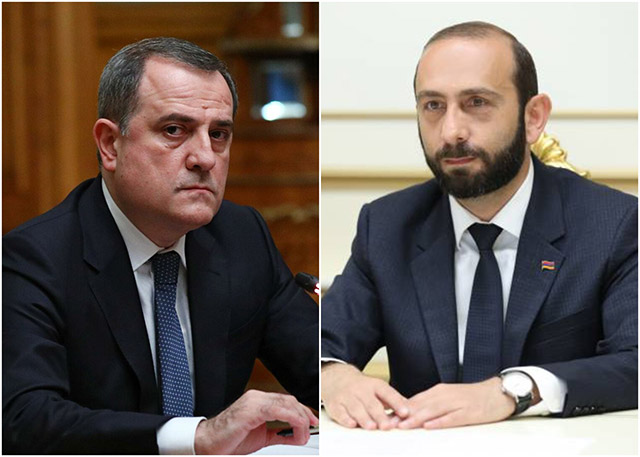Azatutyun.am. Azerbaijan again rejected on Thursday Armenia’s conditions for demarcating the long border between the two states where deadly skirmishes break out on a regular basis.
Azerbaijani President Ilham Aliyev and Armenian Prime Minister Nikol Pashinian pledged to set up a joint commission on border delimitation and demarcation during a trilateral meeting with Russian President Vladimir Putin held in Sochi last November.
The Armenian government said last month that the commission should start its work after a set of confidence-building measures, notably the withdrawal of Armenian and Azerbaijani troops from their border posts.
Azerbaijani Foreign Minister Jeyhun Bayramov repeated on Thursday that Baku wants an unconditional start of the demarcation process and that the Armenian proposals are therefore unacceptable to it.
Read also
“Armenia, which occupied Azerbaijani lands for 30 years, does not have a legal, political or moral right to set any conditions for the border demarcation,” he said.
Official Yerevan did not immediately react to Bayramov’s remarks. Speaking with journalists earlier in the day, Foreign Minister Ararat Mirzoyan confirmed that Baku objects to “measures which we believe would create security mechanisms on the border.”
“This is an ongoing process,” Mirzoyan said, downplaying the rebuff. “It’s not that we proposed something once and they rejected it. There have also been [Azerbaijani] proposals unacceptable to us.”
Responding to Bayramov’s earlier reaction to Yerevan’s “preconditions,” the Armenian Foreign Ministry said on January 20 that Aliyev and Pashinian agreed on the mutual troop withdrawal during their follow-up negotiations held in Brussels in December.
Russia regularly calls for a quick start of the demarcation process, saying that it would minimize ceasefire violations along the Armenian-Azerbaijani border. The process is due to be mediated and facilitated by Russian officials.
Two senior European diplomats discussed the matter with Aliyev and Pashinian when they visited Baku and Yerevan last month. Toivo Klaar, the European Union’s special representative to the South Caucasus, described the talks as “excellent.”





















































